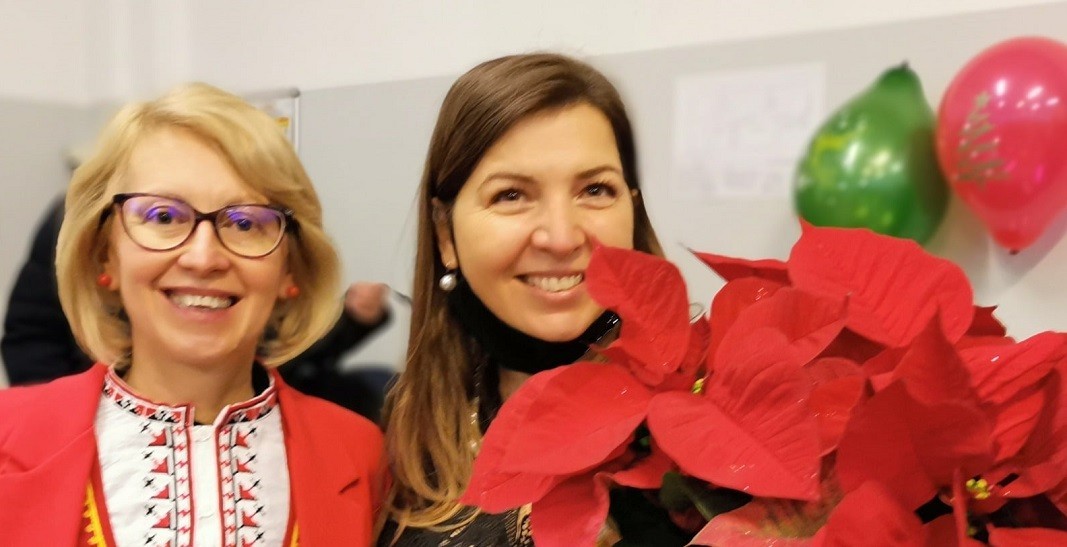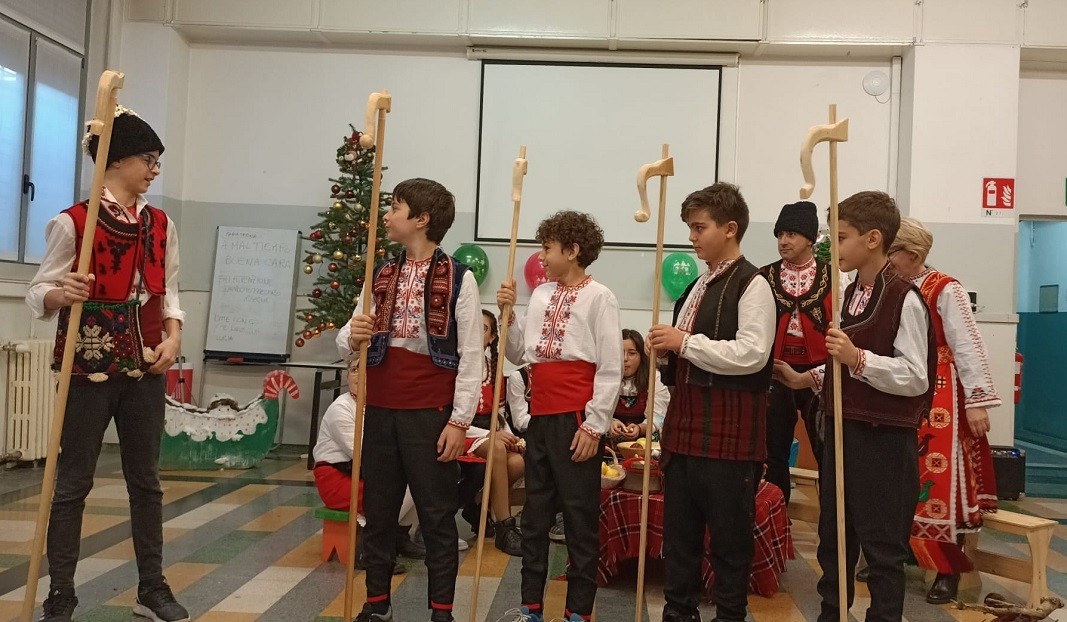 7
7
"Santa, I don't want a present for myself, but pleasemake my kitten come home..." A letter from a Bulgarian child in Milan has already arrived in Lapland, and the children from the Peyo Yavorov Sunday School in the Italian city of Milan have welcomed the Good Old Man with a Christmas party.
In the pre-holiday days the happiness of the Bulgarian children in Milan is measured in learned verses, melodies, dance steps. Unlike the previous year, when Northern Italy became a harbinger of the pandemic reality for all of us, the children in the Bulgarian school had a real celebrationfor this Christmas . And since the sleigh with the presents stopped somewhere near them, they received their desired gifts and strengthened their belief in the requested miracles. One child was hoping to get a toy or other item, another one had wished for more games, and a third kid is about to make his dream of celebrating Christmas with his grandparents in the village come true. "Every child is a separate world and their desires are a reflection of the world in which they live," said school principal Gergana Hristova.

How did this exhausting year for all of us affect the learning process at the Bulgarian school in Milan?
"It was an extremely difficult year, but a lot of good things were born from these difficulties," Mrs. Hristova says.”In the beginning, the pandemic was a terrible blow for us, because our role is to gather people, exchange ideas and be together. And when we didn't have the opportunity to do all that, our mission seemed to be at risk. However, thanks to the help we received, we were able to quickly organize a high-quality remote learning with university professors. We currently have the opportunity to educate children not only from Milan, but also from all over northern Italy and even Asia. So we try to be positive and say to ourselves that despite everything we lost in the pandemic, we have won a lot and we are trying to move forward in that spirit.”
About a hundred Bulgarian children have an encounter with their native language, history and traditions every Sunday. In addition to distance learning, they have the opportunity to attend classes, communicate and play, make friends. When the school was founded in 2014, most of them spoke their mother tongue because they were born in Bulgaria - unlike the younger children today, who study according to the methodology of foreign language teaching.

"In fact, it is not strange that not all children speak Bulgarian, as much depends on the family”, explains the school principal. “In the more populous families - with grandparents, aunts and uncles in Bulgaria, travel is more frequent and with them maintaining the language becomes easier. But there are also families in which only one of the members is a native speaker. There is often disappointment, because despite the energy, desire and love invested, the results come slowly and with great difficulty. It is these families that need us most as an external motivator who can support them.”

One of the big questions for Bulgarian schools abroad is how to encourage children to be interested in everything that represents and embodies Bulgaria.
"We try in every possible way to motivate children, including extracurricular activities such as theatre and folk dances," says Gergana Hristova. "Thus, in the Christmas celebration, everyone expressed themselves according to their interests and abilities."

In the seven years since the Sunday School in Milan has been working, a close-knit community of parents has emerged to unite around noble causes. Like this one to help the family of their beloved priest Stefan, who left this world in September this year. His grateful parishioners have already organized a book bazaar, from which they raised a lot of money, and are considering other charitable initiatives. Meanwhile, they look to the future with hope. According to Gergana Hristova, our life will never be the same, but it can get better.

English version Rositsa Petkova
Photos: facebook.com/scuolabulgaramilano
On 25 January 1935, Tsar Boris III signed the decree establishing the Bulgarian National Radio. The document, which officially marked the beginning of "Radio Sofia", as the Bulgarian National Radio (BNR) was then called, made radio broadcasting in Bulgaria..
The Federation of European Carnival Cities has declared Pernik a global center of masquerade traditions. 16 years ago, Prenik was named the European Capital of Sourvakar and Mummer Traditions, and nearly 10 years ago, the Surva festival was..
Bulgaria ranks last among EU Member States in terms of life satisfaction. This is according to Eurostat data for 2023 published today . With an average level of the Community indicator of 7.3 points out of 10, Bulgaria scores 5.9. Finland tops the..
The Federation of European Carnival Cities has declared Pernik a global center of masquerade traditions. 16 years ago, Prenik was named the European..
On 25 January 1935, Tsar Boris III signed the decree establishing the Bulgarian National Radio. The document, which officially marked the beginning of..

+359 2 9336 661
